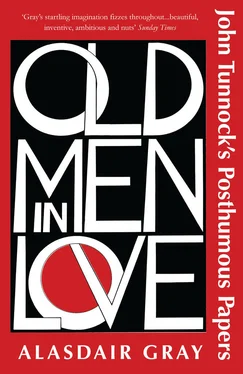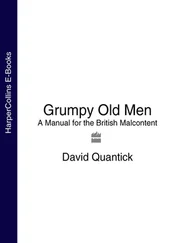Socrates ends the following long speech from the centre of the floor.
SOCRATES: Of course in the middle of a crowd like this I enjoy feeling as good as anyone else: but alone I am sometimes. . terrified by the thought that there is nobody in the world superior to me. I wanted to prove that oracle wrong so went straight to the top. I visited a great and noble statesman whose name — I shall not disclose. He was twice divorced, lived with a foreign prostitute and had a bald head which came to a point like the dome of the new music-hall. His head embarrassed him, so you see him in public statues wearing a helmet like Agamemnon and Achilles wore when the Greeks fought the Trojans, and why should he not? In warfare he was a better general than Agamemnon who, by Homer’s account, antagonized his bravest officer, and better than Achilles who spent most of the war sulking behind the lines. .
PRESIDENT: ( exasperated ) You’re supposed to be defending yourself man, not praising Pericles.
SOCRATES: ( as if puzzled ) Is that what I’m doing? I’m sorry. This statesman ruled Athens for thirty years because the majority party thought he was defending them from the greed of the rich, and the best people thought he protected them from the many. He kept both sides happy by plundering our allies under the pretext of defending them from Persia, and many folk still think that the goodness and beauty of Athens was all his doing. But when I asked him how men could learn to be good his answer — when I stripped away the trimmings — was “Vote for me”. About virtue that great man was as stupid as I am — in fact stupider, because he thought he was wise and virtuous. I tried to explain his curious mistake and he got very cross. So did his friends. They stopped inviting me to their houses.
Now a great scientist lived in Athens at that time, a foreigner from Ionia who we nicknamed “Heavenly Reason”. ( points forefinger ) You condemned him to death for heresy, didn’t you? You shouldn’t have. He really did worship God, but where a peasant sees the maker of the universe as a mysteriously angry old man chucking lightning around, Anaxagoras saw him as a heavenly energy driving streams of atoms to resolve their friction by electrical discharges of an occasionally lethal nature. That made no sense to me, but when this old chap spoke about it his eyes opened wide and stopped focusing — he was as full of reverence and wonder as a priestess on a tripod. I said “Master! Teach me wisdom please”. He showed me his big new map of the heavens. Very pretty it was, hundreds of circles with the sun in the middle instead of the world. He said “Believe this. It is true.” “All right”, I said, “But I live in Athens. How can Athenians become better men?” He said “Study the stars. When men appreciate the vastness of the heavenly harmony, they will forget their petty differences and harmonize with each other.” He thought that answered my question. I disagreed.
For the last twenty years I have used my little bit of genius to examine men who were thought to be geniuses all the way through, and all I’ve found are people clever at their job. In everyday life they are as ignorant as shopkeepers, labourers and slaves. Apollo is right! We’re complicated, we Athenians — kind to animals at home and killing innocent families in lands which want nothing to do with us. I believe God likes me to spread uncertainty, I won’t stop doing it. And of course, a lot of rich young idlers follow me around because they like seeing their elders looking uncomfortable. They imitate me too, and anyone who’s exposed as a bit muddle-headed and inconsistent — (and who isn’t? I know I am) — blames me instead of himself. And any politician who starts losing votes blames me instead of himself. And any father whose son doesn’t love him blames me instead of himself. ( he is near Anytus and looks at him ) Tell me, Anytus. If I am a danger to the youth of this city, what men are good for them? Who teaches them virtue?
ANYTUS: All of them. Except you.
SOCRATES: All of them? ( he glances, puzzled, at the jury ) Will you explain that?
ANYTUS: I will. Other teachers talk to the people in crowds: you speak to them in small private parties. You say this is because you lack eloquence — a lie. The jury have heard you now and know you lied. You deal with us in ones and twos because we are weaker that way. When a useful citizen is separated from others and examined on his wisdom of course he does badly. Taken separately we are ignorant and selfish, as you easily prove. But when we co-operate our small bits of knowledge become a wisdom surrounding and supporting everyone — even you, who are too vain to notice it. Through democracy we feed, love and defend each other, we stand up, look at the stars and salute the Gods, that isn’t ignorance. Joined in society we teach our children to serve themselves by serving others. Some teaching comes from experts but the best teaching is the example of ordinary citizens. The only man who teaches nothing but wrong is the one who stands outside society and beckons.
Cries of approval from some jurors.
SOCRATES: Anytus, I am the most sociable man in the state! The streets are my clubrooms. I talk to anyone.
ANYTUS: It’s easy for the parasite to stump up and down, gather an audience of two or three and teach it to sneer at the majority he depends upon. Your questions split us up. When we doubt our small store of traditional wisdom we cannot act together. Society lives by actions, not by puzzling over demoralising questions. You are a criminal because you are a demoralizer!
SOCRATES: ( staring at him ) The only one?
ANYTUS: The main one! ( he points at the disciples ) If society shuts your mouth these people will close theirs.
Louder cries of approval.
PRESIDENT: ( loudly ) Now then, a little patience please, we’re getting to the end.
SOCRATES: ( thoughtfully ) Anytus, before you spoke of shutting my mouth you were almost talking intelligently. I like the idea of this great wise giant called society. Can he instruct me? Where can I hear his voice? It surely wasn’t that braying sound I heard a moment ago. .
Loud boos and hisses from jurors, silenced when Anytus raises his hand, shaking his head.
SOCRATES: ( smiling ). . was it?
ANYTUS: The voice of a society is in our laws. Laws made and voted for in parliament by the people.
SOCRATES: I don’t contradict that voice, Anytus. I’ve never broken that law. No law forbids a man saying what he thinks.
ANYTUS: Another voice of society is public opinion revealed through a legal action — this legal action. I tell you that Athens is sick of you.
SOCRATES: So you are the voice of Athens?
ANYTUS: The vote will tell us. If the majority are for you I must pay a very large fine.
SOCRATES: That hardly seems right when you’ve only said what you sincerely believe. ( loudly ) Mr President, let’s have the voting. ( stumps over to his disciples waving stick at the jury and shouting ) I hope there are philosophers among you lot.
The jurors engage in arguments and conversations. The president consults the paper in his hand. Two court officials mount the stage and stand, one on each side of him.
PRESIDENT: Will three friends of the accuser and three of the accused kindly join the tellers?
The official on Socrates’ side is joined by Plato, a handsome young aristocrat; by Crito, who is a fat, bald, comfortable-looking person; by Aeschines, a haggard working-class intellectual. The three who join Anytus are all middle-class. The president, paper in hand, comes to the front of the stage where he can most closely dominate the assembly. A gong, bell or board is struck loudly. The crowd falls silent.
Читать дальше












